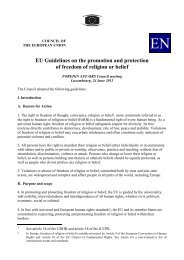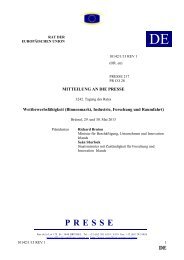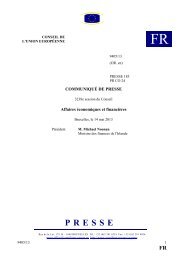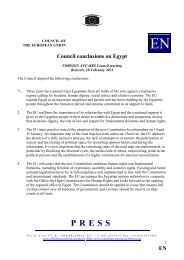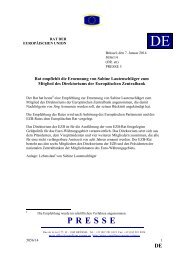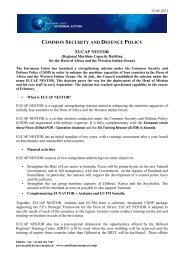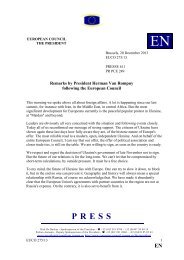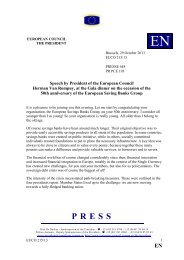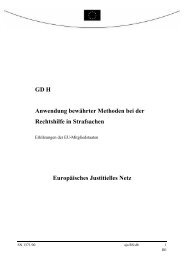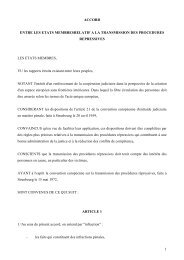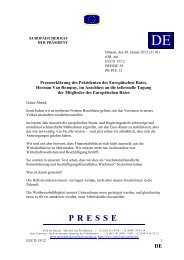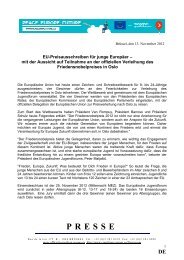14508/09 ADD 1 PL/vk 1 DG G COUNCIL OF THE ... - Europa
14508/09 ADD 1 PL/vk 1 DG G COUNCIL OF THE ... - Europa
14508/09 ADD 1 PL/vk 1 DG G COUNCIL OF THE ... - Europa
Create successful ePaper yourself
Turn your PDF publications into a flip-book with our unique Google optimized e-Paper software.
4.10.3. EU policy on eliminating gender stereotypes<br />
The field has recently been addressed by the EU. In the Commission's Report on equality between<br />
women and men – 2008 the need for MS to step up efforts to tackle stereotypes in education,<br />
employment and the media is identified. On 15 May 2007, Germany, Portugal and Slovenia signed<br />
a Trio Presidency Declaration on the promotion of gender equality in the European Union,<br />
identifying the elimination of gender stereotypes as the connecting theme of the gender equality<br />
work undertaken by the Trio Presidency. Also, the challenges faced by women and men in response<br />
to changing the gender role models was one of the key issues addressed at the Informal Meeting of<br />
Ministers of Gender Equality and Family Affairs under Germany's Presidency in May 2007. A<br />
European expert conference on “Entrepreneurship and Employability – Gender Stereotypes” was<br />
organised by Portugal's Presidency in 2007, and a Europe-wide conference entitled “Elimination of<br />
Gender Stereotypes – Mission (Im)Possible?” was organised by Slovenia's Presidency in January<br />
2008. The Czech Republic's Presidency pursued the debate on this issue and also organised a<br />
European expert conference on "New ways in overcoming gender stereotypes".<br />
In May 2008, the Council adopted conclusions on “Eliminating Gender Stereotypes in Society” in<br />
which it concluded that the media, including the advertising industry, contributed to the<br />
reproduction of culturally transmitted stereotypes and images of women and men. Therefore, the<br />
Council concluded, it was necessary to develop critical media education in schools, and, while<br />
taking into account the freedom of expression of the media, to establish a dialogue with the media<br />
on the harmful effects of negative gender stereotypes on the self-perception of young people and on<br />
their perceptions of gender roles and relations in society. The media was also described as having<br />
an important role to play in combating gender stereotypes and in promoting a non-discriminatory<br />
and realistic portrayal of girls/women and boys/men in society.<br />
<strong>14508</strong>/<strong>09</strong> <strong>ADD</strong> 1 <strong>PL</strong>/<strong>vk</strong> 115<br />
ANNEX <strong>DG</strong> G EN



